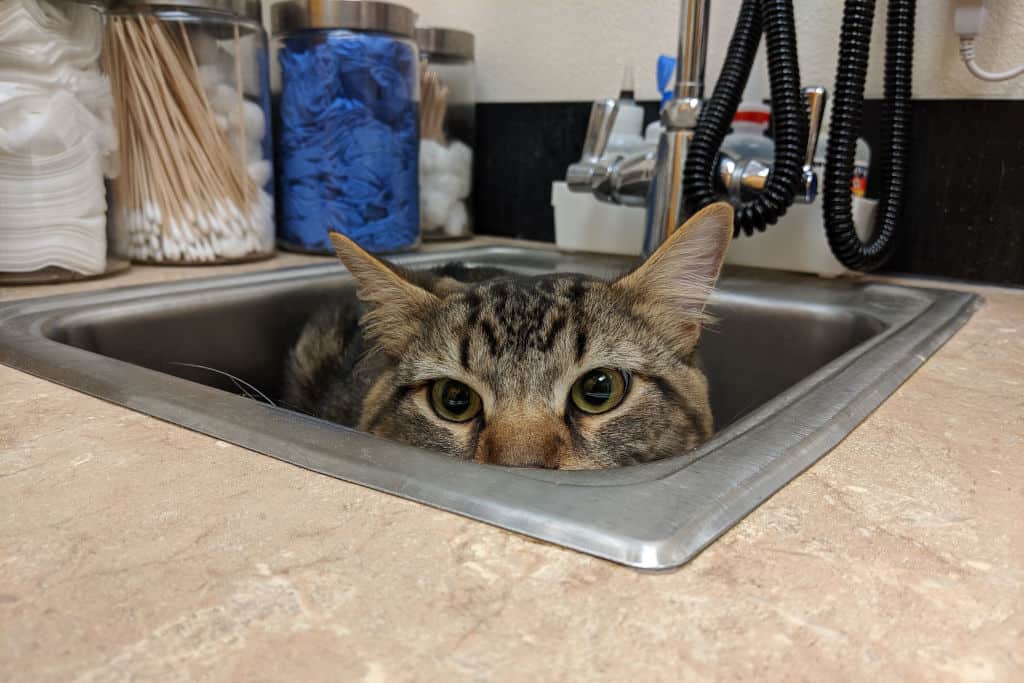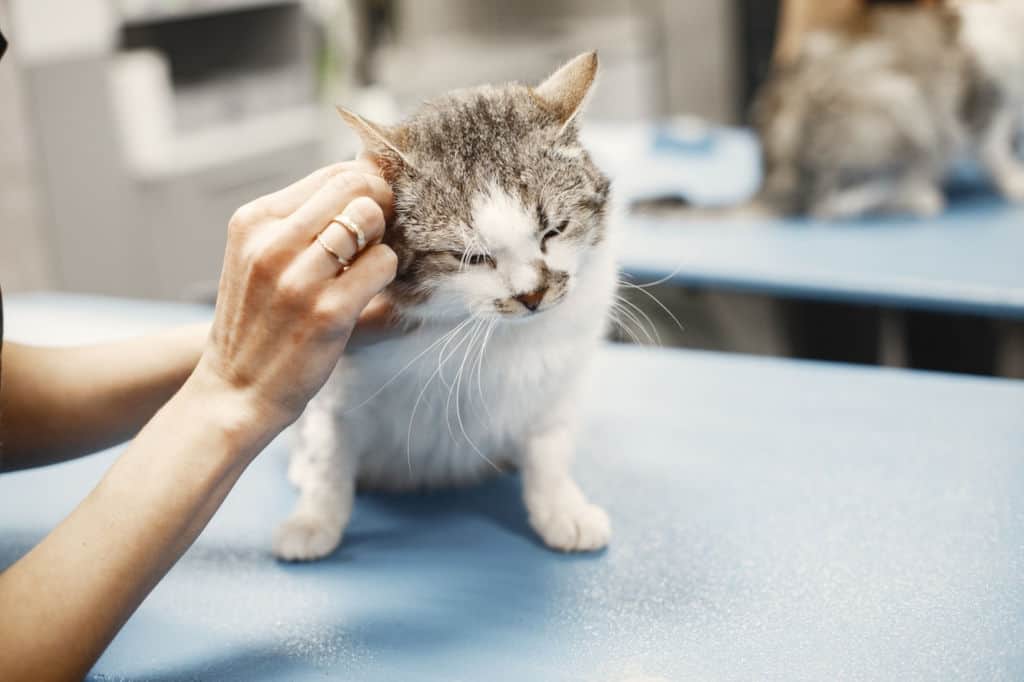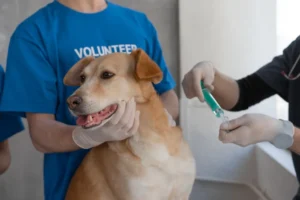Your cat’s health is priceless, but regular check-ups can add up quickly. Don’t let the cost of care deter you from maintaining their well-being!
Key takeaways:
- Regular check-ups can detect and prevent health issues early, ensuring cats’ overall health and well-being.
- Cats are skilled at hiding illness, making annual check-ups crucial.
- A check-up involves a physical exam, vaccinations, parasite control, and weight monitoring.
- How often a cat needs check-ups depends on age, breed, and overall health.
- Pet insurance and low-cost clinics can reduce the cost of regular check-ups.
In this post, we’ll explore the benefits of annual check-ups for cats, what happens during a typical visit, and how to reduce the cost of care without sacrificing quality.

Benefits of Regular Check-Ups
Regular check-ups for cats can help detect and prevent health issues early, ensuring their overall health and well-being. By focusing on preventive care and early detection, you can save money on future treatments and keep your cat healthy and happy.
Here are the main benefits of regular check-ups for cats.
Improved overall health
Regular check-ups can help ensure that your cat is in good health and help prevent health issues from arising.
During a check-up, your veterinarian can examine your cat’s overall condition, including weight, body temperature, heart rate, and other vital signs. They can also check for any signs of illness or injury and provide recommendations for maintaining your cat’s health.
Unlike with humans, a lot can change in a cat’s health within a year. Just as we benefit from annual medical visits, so do our feline companions.
While taking cats to the vet might be stressful for them, it is nearly always preferable than not to take them at all. They may be unhappy and hurt for a day or two, but they’ll quickly return to normal.
The advantages of managing medical issues almost always outweigh the risks of stressful travel, and getting a check-up once a year is often just as beneficial.
Early detection and prevention of illnesses
It’s a little-known fact that sometimes, a cat’s subtle behavioral changes—like increased hiding or slight alterations in eating habits—can be early signs of an underlying issue.
Cats are excellent at hiding signs of disease.
Their instincts teach them that predators prey more easily on the weak, so they act as if nothing is amiss until they can’t, which is often too late. Yearly visits ensure that nothing is going on that I can’t see and that a vet would have detected.
By giving your cat routine care once or twice a year, you can prevent many infections by catching them early.
Here are some specific examples of health issues that can be prevented or detected early through routine care:
- Dental disease. Regular dental cleanings and check-ups can help prevent tooth decay, gum disease, and other dental issues.
- Heart disease. Routine blood work and physical exams can help detect signs of heart disease, such as an irregular heartbeat or murmurs.
- Kidney disease. Blood work and urine tests can help detect early signs of kidney disease, which you can manage through changes in diet and medication.
- Parasites. Routine fecal exams and parasite prevention can help prevent common parasites, such as fleas, ticks, and worms, that can cause a range of health problems for cats.
- Cancer. Physical exams can help detect lumps or masses, which can be an early sign of cancer. Catching cancer early can increase the chances of successful treatment.
Veterinarians can detect many indications of sickness that are not visible to the naked eye. They can palpate the belly and detect lumps and changes in organ form and consistency before the cat exhibits behavioral changes. They examine the cat’s mouth for dental problems before it becomes severe enough to cause discomfort.
‘d be surprised how many times I’ve heard from friends who only realized their cat had dental pain after the vet pointed out clear signs during an annual check-up. Truly, these routine visits can be eye-opening.
Regular check-ups can help detect health issues early before they become more severe and potentially more expensive to treat.
For example, routine blood work can help detect signs of infection, organ dysfunction, or other health problems. Vaccinations and parasite prevention can help prevent illnesses and keep your cat healthy. And when you need to travel with your cat, you’ll save yourself some headaches.
Maintenance of good health through preventive measures
Along with early detection, preventive measures can help maintain your cat’s health over time.
This includes regular vaccinations to prevent common illnesses, parasite prevention to protect against fleas, ticks, and worms, and dental care from preventing tooth decay and gum disease. Focusing on preventive care can reduce the risk of expensive treatments for more serious conditions in the future.
When you take your cat to the vet once a year, the vet checks to make sure they are up to date on immunizations and boosters.
By prioritizing regular check-ups for your cat, you can help ensure their overall health and well-being and save money on future treatments. Your veterinarian can provide personalized recommendations for your cat’s specific needs and help you create a preventive care plan that works for you and your pet.

What Happens During a Check-Up
During a check-up, your veterinarian will perform various services to help ensure the health and well-being of your cat. This can include a physical examination, vaccination updates, parasite control, and weight and overall health monitoring.
Physical examination
During a physical exam, your veterinarian will check your cat’s vital signs, such as heart rate and breathing, and examine their body. This includes checking their ears, eyes, teeth, and mouth and feeling for any lumps or bumps.
The exam can detect any signs of illness or injury and provide recommendations for maintaining your cat’s health.
Vaccination updates
Vaccinations protect your cat against illnesses like feline leukemia, rabies, and distemper.
Your vet can update your cat’s vaccinations based on age, lifestyle, and risk factors during a check-up. Keeping your cat’s vaccinations up-to-date can prevent illnesses and reduce the risk of expensive treatments.
Parasite control
Fleas, ticks, and worms are common parasites that can cause health problems for cats, such as skin irritation, anemia, and even death in severe cases. During a check-up, your vet can recommend and provide parasite prevention treatment, such as topical treatments or oral medications.
Monitoring of weight and overall health
Your veterinarian can monitor your cat’s weight and overall health during a check-up. This can help detect changes in your cat’s health over time and provide recommendations for maintaining their health.
For example, if your cat is overweight, your veterinarian can provide recommendations for diet and exercise to help them lose weight and prevent health problems associated with obesity.
Monitoring your cat’s nutrition and weight is fundamental. Even slight shifts in their weight can signify underlying problems, often undetectable without professional advice.
By understanding what happens during a check-up for your cat, you can be prepared and know what to expect during the visit.
How Often Should Your Cat Have Check-Ups?
Regular check-ups are essential to keep your furry friend in tip-top shape – but how often is enough?
Recommendations based on age
For kittens, frequent check-ups are necessary to ensure that they are growing and developing properly. Kittens should be seen by a veterinarian every 3-4 weeks until they are about 4 months old.
After that, annual check-ups are recommended for adult cats. As cats age, more frequent check-ups may be necessary to monitor for age-related health issues.
Senior cats may require more comprehensive exams, including blood work, urinalysis, and other diagnostic tests to check for conditions like arthritis, kidney disease, and diabetes. Your veterinarian can provide personalized recommendations based on your cat’s age and health status to ensure they receive the appropriate level of care.
Recommendations based on breed
Some cat breeds may be more prone to specific health issues like heart disease or respiratory issues. In these cases, more frequent check-ups may be recommended to monitor for potential health problems.
For example, Persian cats may require more frequent dental check-ups due to their flat faces, which can lead to dental problems.
Recommendations based on overall health
If your cat has a history of health issues or is currently managing a chronic health condition, more frequent check-ups may be necessary to monitor their health and adjust treatment plans.
By understanding the recommendations for how often your cat should have check-ups, you can help ensure their health and well-being. Regular check-ups can help detect and prevent health issues early, potentially reducing the risk of expensive treatments for more serious conditions in the future.

Cost of Check-ups
The costs can vary based on the location, the specific services needed, and the type of procedure/vaccine.
On average, a standard check-up for a cat can cost between $50 and $100 in an averagely priced US city, depending on the services provided during the visit.
These check-ups typically include:
- a veterinary exam fee ($50-100),
- vaccinations if needed ($50-100 or more),
- and tests such as a fecal exam ($20-50),
- heartworm test, if recommended for the area ($30-50),
- and flea and tick prevention if needed ($20-50).
If you’re taking your indoor cat to the vet for the first time for a check-up may also include:
- Feline leukemia virus (FeLV) and Feline immunodeficiency virus (FIV) tests ($40-80)
- and basic blood work to check for infections or diseases ($50-100).
Please note that these are only estimated costs. Actual costs may vary depending on the specific veterinary practice, location, and the services and tests performed.
Rescued kitten’s first check-up
If you’re bringing in a rescued kitten, you may be able to cut your costs by taking them to the shelter first to get a few things done instead of the vet.
A rescued kitten’s immunizations may cost $10-20 at a shelter and $50 at the vet. Spaying or neutering a kitten can range from $20 to $50 at a shelter to $200 to $400 at a veterinarian’s office. The kitten may also need to be dewormed.
How to make your vet bill cost less?
If the cost of regular check-ups is a concern, there are options for reducing these expenses.
One option is to look for low-cost clinics or programs in your area. These clinics may offer services at a reduced cost or financial assistance for those who qualify, with some offering services at a 50% lower cost than traditional vets.
Another option to consider is pet/cat insurance, which can help cover the cost of routine care and unexpected veterinary expenses, with an average monthly premium of $50 for cats.
Don’t hesitate to ask your veterinarian if they offer any discounts for routine care or multiple pets. Some veterinary practices may offer discounted rates for senior pets or for owners with multiple pets, with discounts ranging from 5% to 10% on average.
Conclusion: The Improtance of Regularly Check-ups for Cats
Regular check-ups for cats are essential for maintaining their health and well-being. By detecting and preventing illnesses early, you can save on future treatments and ensure a healthy, happy life for your cat.
During check-ups, your veterinarian will provide vital services such as physical examinations, vaccinations, parasite control, and overall health monitoring. Consult your veterinarian to determine the recommended check-up frequency based on your cat’s age, breed, and overall health.
Remember, investing in routine preventive care is key to your cat’s long-term health and happiness. If you haven’t chosen a vet yet, check our excellent guide on choosing the right vet.
Alex, a passionate animal lover, has experience in training and understanding animal behavior. As a proud pet parent to two dogs and three cats, he founded AnimalReport.net to share insights from animal experts and expand his knowledge of the animal kingdom.




